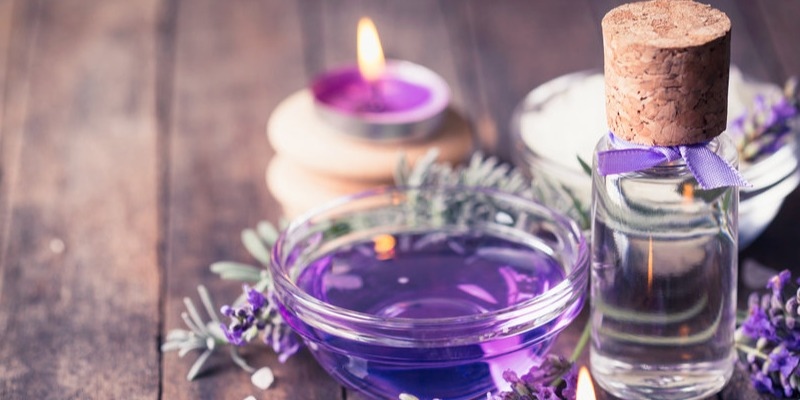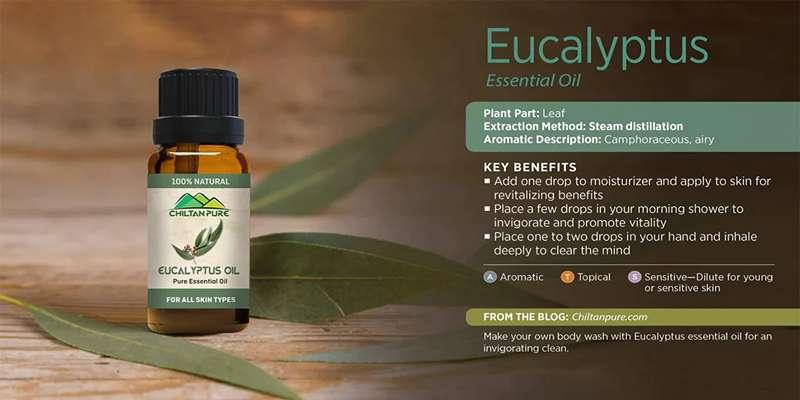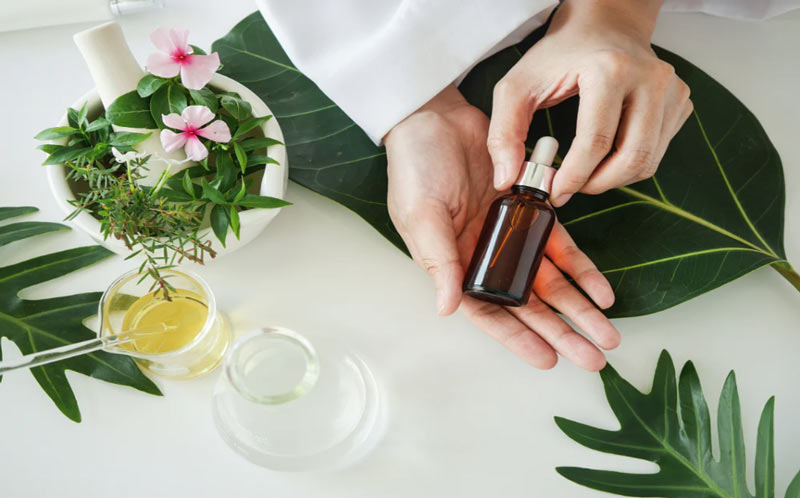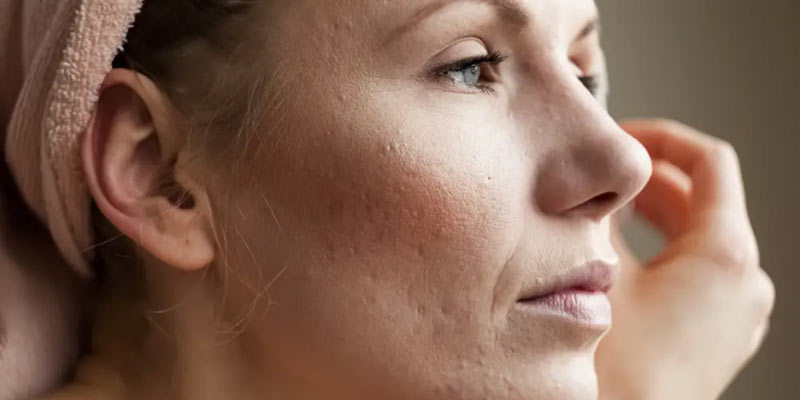How Does Retinol Work
Nov 08, 2023 By Madison Evans
Are you curious how RRetinol, the vitamin A derivative in many anti-aging products, benefits your skin? Do you want to know why it’s an ingredient of choice for dermatologists and aestheticians alike?
In this blog post, we will explore the science behind rRetinoland, explain how it works--and explain why its results can be so transformative. You may already know some basics about this magical ingredient, but let's dig into the research to discover what makes rRetinolsuch a powerful tool in skin care. Keep reading to learn more!
What is Retinol and How Does It Work on the Skin
Retinol is a form of Vitamin A widely used as an anti-aging ingredient in skincare products. It stimulates cell turnover and collagen production, resulting in smoother, firmer skin with fewer wrinkles and blemishes. Retinol also helps to even out skin tone and texture, giving it a healthier, more youthful appearance.
Retinol cancan penetrates deep into the skin’s layers, where it helps to increase cell turnover and stimulate collagen production. This, in turn, leads to smoother, firmer skin with fewer wrinkles, improved elasticity, and a more even skin tone. Additionally, retinol can help reduces the appearance of acne and other blemishes by preventing dead skin cells from clogging pores.
Benefits of Using a Retinol Product Regularly
1. Stimulate Collagen Production: Retinol helps to stimulate the production of collagen, which is essential for maintaining healthy skin structure and youthful appearance.
2. Improve Skin Texture: Regular use of a retinol-containing product can help improve your skin’s texture by reducing the appearance of wrinkles, blemishes, and dark spots.
3. Increase Cell Turnover: Retinol helps increase cell turnover, resulting in a brighter complexion and smoother skin.
4. Reduce Inflammation: Retinol can help reduce inflammation caused by acne and other skin conditions, such as rosacea.
5. Fade Hyperpigmentation: Retinol can help to fade the appearance of hyperpigmentation, resulting in an even skin tone.
6. Reduce Acne: Regular use of a retinol-containing product can help reduce acne outbreaks and keep pores clear.
7. Improve Skin Tone: Retinol helps to even out skin tone and texture, resulting in a more even complexion.
8. Reduce Pore Size: Retinol can help to minimize the appearance of large pores and make them less visible.
9. Protect Against Sun Damage: Retinol can help protect against sun damage by preventing UV rays from penetrating the skin’s surface.
10. Reduce Signs of Aging: Retinol can help to reduce the appearance of fine lines and wrinkles, making you look younger and more refreshed.
Different Types of Retinols Available
1. Retinol:
This is the purest form of retinol and is most commonly found in over-the-counter skincare products. It’s generally less potent than other forms of retinol, so it may take longer to see results.
2. Retinyl Palmitate:
This is a weaker form of retinol, but it still provides many of the same benefits as other forms. It’s typically found in lower concentrations than other types of retinol and is an ideal choice for those with sensitive skin.
3. Retinaldehyde:
This is a more potent form of retinol quickly converted into retinoic acid by the skin. It provides more dramatic results than other forms, but it can irritate those with sensitive skin.
4. Retinoic Acid:
Also known as tretinoin, this is a prescription-strength form of retinol available in topical and oral forms. It provides the most dramatic results but can also irritate those with sensitive skin.
5. Hydroxypinacolone Retinoate (HPR):
This newer form of retinol is said to be less irritating than other forms yet still provides many of the same benefits as traditional retinol.
Factoring in Your Skin Type When Choosing a Retinol Product
Many types of retinol products are available, and it’s important to choose one that is right for your skin type. Those with sensitive or dry skin should opt for a lower-concentration product, while those with oily or acne-prone skin may benefit from a higher-strength formula.
It’s also important to start slowly and build up to using a retinol product more regularly, as too much can lead to irritation. Be sure to follow the instructions for use on any retinol product you choose, and always wear sunscreen when using a retinol product, as it makes your skin more sensitive to UV rays.
Side Effects of Using Too Much Retinol
Although retinol is an effective skincare ingredient, it’s important to be aware of the potential side effects of overuse. These include dryness, redness, irritation, flaking, and peeling of the skin.
Start slowly and use only a small amount of product to avoid these side effects. If you begin to experience any of these symptoms, reduce the frequency or amount of rRetinolyou’re using until your skin adjusts.
Tips for Introducing Retinol into Your Skincare Routine
- Start using a low-concentration product and gradually increase the strength as your skin adjusts.
- Begin by using it only once or twice weekly, then slowly increase the frequency over time.
- Use a moisturizer to keep your skin hydrated while using retinol products.
- Apply a broad-spectrum sunscreen daily when using retinol products, as they make your skin more sensitive to sunlight.
- Avoid mixing retinol with other active ingredients, such as alpha hydroxy acids or benzoyl peroxide.
FAQs
Q: Is RRetinolsafe to use?
A: When used correctly, Retinol is generally considered safe for most skin types. Be sure to follow the instructions on any retinol product you choose, and begin with a lower-concentration product if you have sensitive skin. It’s also important to use a moisturizer while using retinol and always wears sunscreen as it makes your skin more sensitive to UV rays. If you experience any side effects such as dryness, redness, irritation, flaking, or peeling of the skin, reduce the frequency or amount of rRetinolyou’re using until your skin adjusts. If you’re still unsure, it’s always best to talk to a dermatologist or aesthetician before using retinol
Q: How often should I use retinol
A: Start being rRetinolonce twice weekly, gradually increasing the frequency as your skin adjusts. Avoid overusing retinol products, as this can lead to irritation. If you experience any signs of irritation such as dryness, redness, flaking, or peeling skin, reduce the frequency or amount of rRetinolyou’re using and give your skin time to adjust. It may be necessary to reduce the use of other active ingredients while introducing a retinol product into your skincare routine to prevent irritation. Additionally, use a broad-spectrum sunscreen daily when using retinol products, as they make your skin more sensitive to sunlight.
Q: Is RRetinolgood for all skin types?
A: Yes, retinol can benefit all skin types, but choosing the right product and using it correctly is important. Those with sensitive or dry skin may benefit from a lower-concentration product, while those with oily or acne-prone skin may benefit from a higher-strength formula.
Conclusion
In conclusion, Retinol is an incredibly powerful skincare ingredient that can provide numerous benefits for the skin. Use it correctly to avoid potential side effects, and choose the right product for your skin type. With proper use, you can experience its transformative results in no time!









